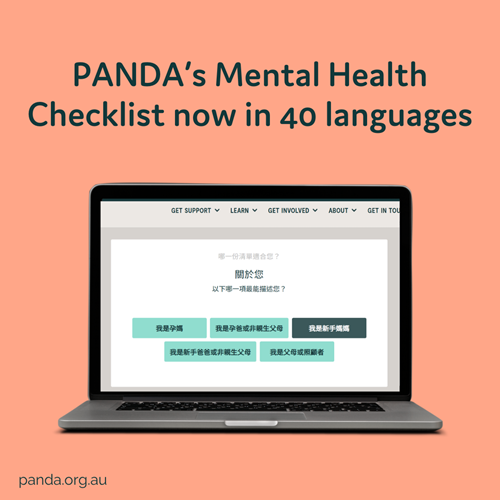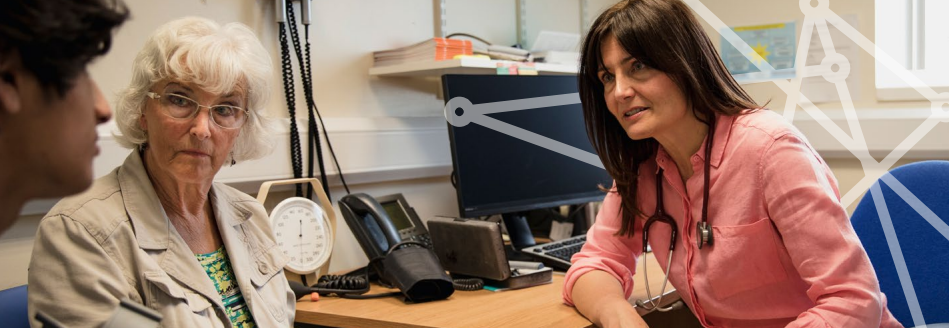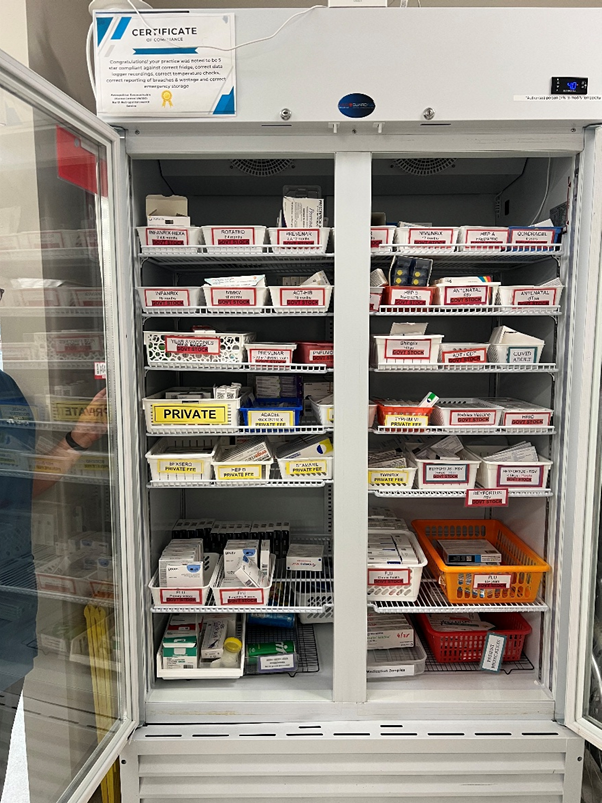Issue 219 – 1 May 2025

| Welcome to Practice Connect, a fortnightly update for practice managers, principals, nurses and administration staff on relevant issues, upcoming events and education. |
MyMedicare updates and reminders
Payments (January – March 2025 Quarter) & Reassessments
Payments for the MyMedicare General Practice in Aged Care Incentive quarterly assessment for January – March 2025 have been processed and notifications have been sent via Health Professional Online Services (HPOS) mailboxes. The time taken to receive funds is dependent on individual financial institutions.
- Remember to check your HPOS notifications for any requiring action, e.g. failed payments due to missing or incorrect bank account details.
- *IMPORTANT MESSAGE FOR RESPONSIBLE PROVIDERS: Add your (responsible provider) bank account details to HPOS specifically for the MyMedicare program, otherwise the
GPACI payments won’t be able to be received. It is essential that this step is completed as it will ensure completion of GPACI registration. - *REASSESSMENTS: There has been a delay in reassessing previous quarterly payments and therefore a delay in adjustments, including additional payments that practices and providers may be expecting. When reassessments have been processed, you will be notified of any adjustments to previous payments via your HPOS mailbox.
Tips on Managing the General Practice in Aged Care Incentive (GPACI)
For GPACI, the relationship between the 3 participants is critical (the practice, the patient, and the Responsible Provider). The assessment process looks for this relationship, and anything that can potentially break or remove any of those relationships will impact GPACI payments for eligible services.
If there is a change in the relationship (e.g. new responsible provider) it is important that the previous relationship is maintained in the patient’s MyMedicare profile. Removing or deleting relationships will impact past payments.
*Note that the Responsible Provider may not be the same practitioner as the patient’s nominated Preferred GP (e.g. a registrar may be engaged to deliver RACH services).
Below are tips on managing GPACI correctly and some cautions on what not to do (also attached as infographics). *IMPORTANT: Using actions incorrectly can impact payments, including reassessment of past payments.
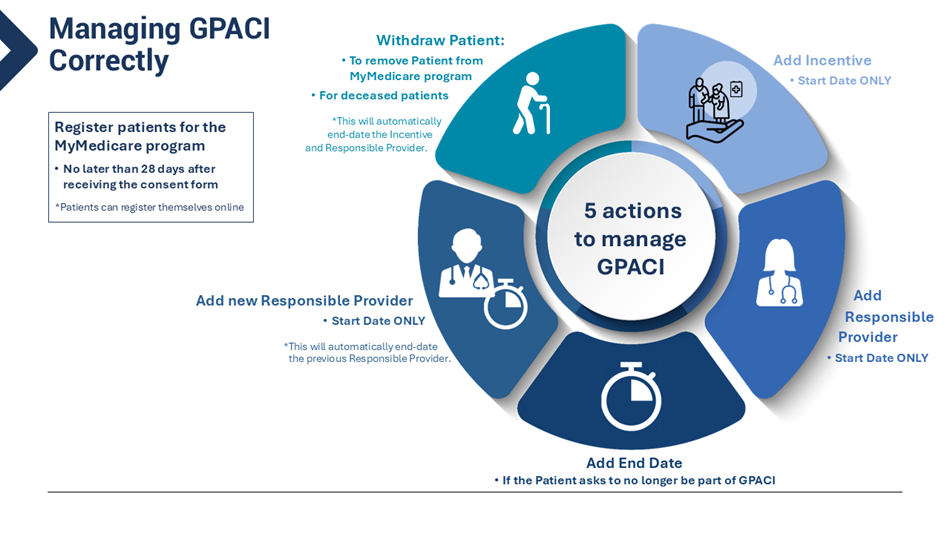
For the Incentive Period:
|
For the Responsible Provider:
|
For the Patient:
|
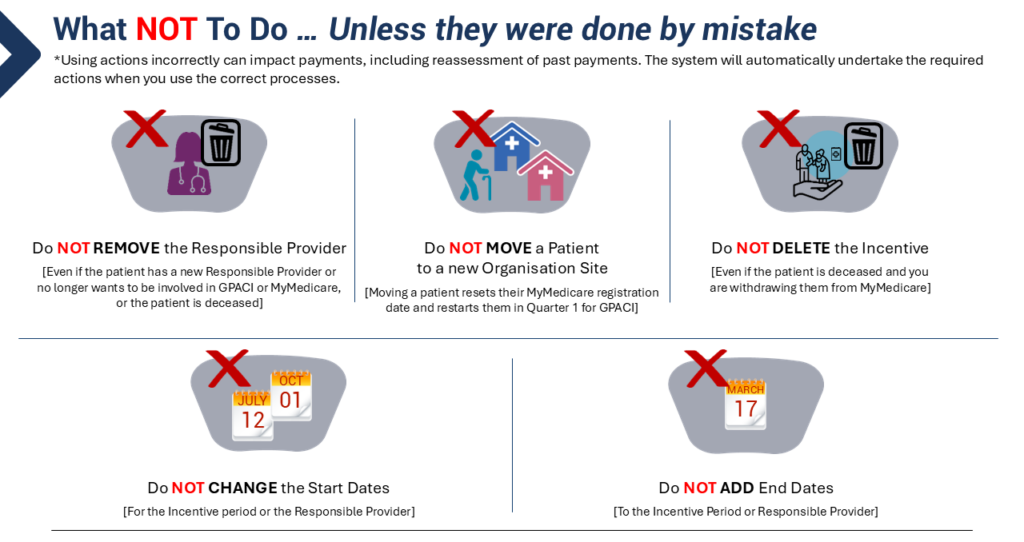
For support with GPACI or MyMedicare, contact the Practice Assist Help Desk or get in contact with your Primary Care Navigator and QI Coach on 1800 2 ASSIST (1800 2 277 478) or 08 6278 7900 or via email practiceassist@wapha.org.au.
New resource: Perinatal mental health checklist in 40 languages
PANDA – Perinatal Anxiety & Depression Australia – has released an online mental health checklist translated into 40 languages. Designed specifically for new and expecting families, it was translated in collaboration with each language group to ensure it is culturally sensitive.
The checklist allows mums, dads, non-birth parents and family to self-assess how they are feeling and offers pathways to support where needed.
They also have printed resources in 40 languages that can be ordered, free, to have available in health care services.
WA Primary Health Alliance launches Care of Chronic Conditions Strategy
WA Primary Health Alliance (WAPHA) is committed to enhancing the quality and accessibility of person-centered primary health care for people with chronic conditions who need it the most.
Our newly released Chronic Conditions Care Strategy (2025-2027) outlines the principles underpinning our Chronic Conditions Program framework and associated care models. Developed in line with our Strategic Plan (2024-2026), the Strategy provides an overview of WAPHA’s priorities and strategic directions for chronic conditions care, including working with general practice to provide a safe, sustainable and high quality service, focused on better health outcomes.
View the full Chronic Conditions Strategy here.
Measles Vaccination: Clinical Advisory from the Chief Medical Officer
The Chief Medical Officer, Professor Anthony Lawler, is urging healthcare professionals to proactively review patients’ immunisation status and to encourage timely vaccination as a key preventative measure.
Australia has seen a recent rise in confirmed measles cases, predominantly among unvaccinated and under-vaccinated adults aged 20 to 49 years. This increase is occurring in the context of ongoing international outbreaks and a general decline in vaccination coverage across all age cohorts, now below the 95% threshold required for herd immunity.
Professor Lawler stressed that measles is a serious and highly contagious disease, and that vaccination is safe and highly effective. Two doses of combination measles-containing vaccine offer 99% protection against illness and serious complications.
WA Department of Health has been notified of one new confirmed case of the measles.
There have now been 15 confirmed cases of measles in WA since 19 March 2025.
Exposure site locations have been updated to include the new case.
WA Department of Health is now funding free measles-containing vaccine for infants aged 6 months to 12 months travelling overseas to countries where measles is endemic or circulating to ensure protection for this vulnerable cohort.
Measles vaccines are funded for the below groups:
- Routine immunisation of children at 12 months and 18 months
- Individuals born after 1965 who have not already received 2 doses of MMR vaccine
- Catch up of refugees and humanitarian entrants
- [NEW] Infants aged 6 months to 12 months, who are travelling overseas to countries where measles is endemic or circulating (after an individual risk assessment), or to infants between 6 and 12 months of age if they have recently been exposed to someone with measles while they were infectious
Refer to the measles chapter of the Australian Immunisation Handbook for detailed advice, vaccine dosage, and contraindications.
Other recommended groups
Individuals born after 1965 who have not already received two doses of a measles-containing vaccine, particularly those who are:
- planning to travel overseas or planning to get pregnant
- healthcare workers and those working with children
- workers in long-term care facilities and correctional facilities
Read the latest and subscribe to the Vaccine Updates here.
Four cases of meningococcal disease reported to WA Health
WA Health has reported four cases of meningococcal infection in the past week; four cases have been confirmed as Serotype B.
Meningococcal disease is an uncommon, life-threatening illness caused by a bacterial infection of the blood and/or the membranes that line the spinal cord and brain, and occasionally of other sites, such as the throat, lungs or large joints.
Five cases of invasive meningococcal disease have been reported in 2025. In 2024, a total of 13 meningococcal cases were reported and there was one death.
There are two types of meningococcal vaccine available: one protects against four serogroups of the meningococcal disease (serogroups A, C, W and Y) and the other protects against serogroup B.
The MenACWY vaccine is offered free to all children at 12 months of age. In addition, the MenACWY vaccine is offered to all Year 10 students, with a free catch-up program for adolescents aged 15 to 19 years old.
Due to a higher rate of meningococcal disease in Aboriginal children in WA, the MenACWY vaccine is offered free to Aboriginal children aged from six weeks to 12 months old.
The MenB vaccine is free for all Aboriginal children aged up to two years old. Both these vaccines are also free for people of all ages with certain medical risk conditions.
People not eligible for free vaccines can request them through their immunisation provider for a fee.
To read the full media release from the WA Department of Health, clickhere.
Tips on storing your vaccines
The WA Vaccine Safety Committee has noted an increase in reports of adverse events following Immunisation (AEFI) due to vaccine errors.
The two main reasons are reporting errors – the provider submitting the wrong data to AIR and the other is the immuniser retrieving the wrong vaccine from the Vaccine fridge.
- The best way to store your vaccines is grouped into age groups, according to your NIP schedule. Baskets for 2, 4 and 6 months and then 12 months, 18 months and 4 years.
- Carry this through to adults and other vaccines, trying to maintain separation where possible.
- All baskets should be open weave to allow air circulation and clearly labelled.
- The vaccines should remain in their original packaging until required.
- Do not crowd the fridge by over ordering and filling the shelves
- Visualise the vaccines needed before opening the fridge door.
For support with Immunisation, visit the Practice Assist Immunisation Tool Kit or contact the Practice Assist Help Desk on 1800 2 ASSIST (1800 2 277 478) or 08 6278 7900 or via email practiceassist@wapha.org.au.
Australian Immunisation Register (AIR) Infographics
Services Australia has released a series of new infographics to support health professionals in using the Australian Immunisation Register (AIR).
The resources detail how to:
- delete a vaccination from the AIR
- access and use AIR reports
- check the accuracy of immunisation encounters before reporting to the AIR
These and other AIR resources can be accessed via the Health Professional Education portal on the Services Australia website.
Protect older West Australians from COVID-19

WA Health encourages providers to administer all vaccines and to promote the COVID-19 boosters through public health networks for older Australians.
- In 2024, 233,000 doses of COVID-19 vaccination were administered in WA, which resulted in a vaccination coverage rate of 43.6% in residential aged care
- Older age is one of the biggest risk factors for serious health issues from common infectious respiratory diseases such as COVID-19
- Regular vaccination is the best way to reduce the risks of serious illness, hospitalisation, or death from infectious respiratory diseases
- Residential aged care providers are responsible for making vaccinations, such as COVID-19, accessible to their residents
- Aged Care residents aged 75 years and older, are recommended to have a COVID-19 vaccination every 6 months. If they’re aged between 65 to 74 years, it’s recommended they have a COVID-19 vaccination every 12 months and can consider a dose every 6 months, based on their individual health needs
- There is no requirement to wait 6 months between a previous COVID-19 infection and having a COVID-19 vaccination
For more information on vaccine eligibility, please see the Australian Immunisation Handbook.
Immunisation Coalition – Annual Immunisation Forum
Presented by Immunisation Coalition
Friday 13 June 2025 (7.00am – 3.00pm AWST)
The 9th Annual Immunisation Forum (AIF) hybrid event will take a place at the Adelaide Convention Centre in Adelaide on 13 June 2025.
The meeting is ideal for GPs, practice nurses, specialists, pharmacists and other immunisation specialists.
The program covers the following topics: a look into aged care, new vaccines for the elderly, adjuvanted vaccines, vaccinations in primary care and pharmacy, managing vaccine hesitancy, targeting at-risk populations and addressing the vaccine gap of First Nations peoples.
This is a free CPD accredited (for online participation) meeting for a national audience.
To register, Online attendance – via Zoom.
Webinar recordings now available
The 2025 Influenza Update was held at the Department of Health Theatrette on Thursday 27 March 2025.
Recordings and slides are now available on the Immunisation Education webpage under the Immunisation Education Update Sessions accordion.
The Immunisation Coalition hosted an Influenza Update on April 2, 2025, and recordings and slides are now available here.
WA Primary Health Alliance hosted a Winter Wellness Webinar on 10 April 2025 covering Flu, COVID-19, Pneumococcal, RSV and Measles. The recording can be found on the Practice Assist Immunisation Toolkit page under webinars or using this link.
National Cancer Screening Register resources
The National Cancer Screening Register (NCSR) are pleased to share a suite of new and updated resources developed to support healthcare providers and practice staff in integrating with the NCSR – and making the most of its functionality to support patients eligible for bowel, cervical and, from July 2025, lung cancer screening.
With the National Lung Cancer Screening Program fast approaching, this is the perfect time for healthcare providers to streamline their processes and provide easier access to their patients screening data.
NCSR have updated and developed:
- A new set of walkthrough videos demonstrating how to access and use the NCSR Hub in Best Practice, MedicalDirector and Communicare
- An article, Empowering Primary Care: Enhancing Cancer Screening with the NCSR, is now available on the NCSR website
- The Primary Care Onboarding Toolkit has been refreshed to include the new videos to support practices in incorporating NCSR Hub functionality into regular workflows
- Also updated is the Communications Toolkit to include the new walkthrough videos
National Cervical Screening Program eLearning modules
In partnership with the Department of Health and Aged Care, the Australian Centre for the Prevention of Cervical Cancer has released the new, improved and updated National Cervical Screening Program eLearning modules. These five individually accredited eLearning modules have been updated in line with changes to the National Cervical Screening Program Guidelines which came into effect on 14 April 2025. The modules are now also presented in a more engaging and interactive style.
Each module contains educational content which will give you the tools to provide and support access to cervical screening. Hosted by GPEx, you can enrol in as few or as many of the following eLearning modules as you wish.
The Modules are:
- Cervical cancer causes, prevention and elimination (1.5hrs)
- The National Cervical Screening Program (1.5hrs)
- Communicating the importance of cervical screening (1.5hrs)
- Screening in practice (1.5hrs)
- Cervical screening follow-up (2.5hrs)
These eLearning modules are provided to you at no cost by the Department of Health and Aged Care and are CPD accredited with RACGP and ACRRM.
For more information and to enrol, please visit the course landing page.
Immunisation provider survey to help improve access to immunisation information in WA
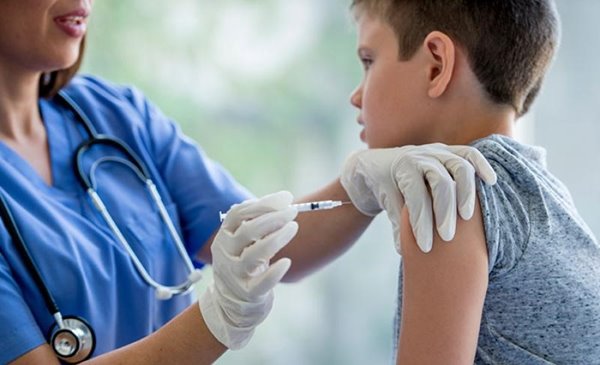
WA Health is exploring better ways for providers and the public to access immunisation advice.
WA Health is seeking to understand more about your information needs when you have immunisation-related queries so they can provide a service that meets your needs.
All WA immunisation providers are asked to fill in the short survey in the link below.
The survey should take less than 5 minutes to complete.
Your responses will help WA Health improve access to immunisation information and support in Western Australia.
The survey will be open until 23 May 2025.
Never miss a BEAT: Heart Week 5-11 May 2025
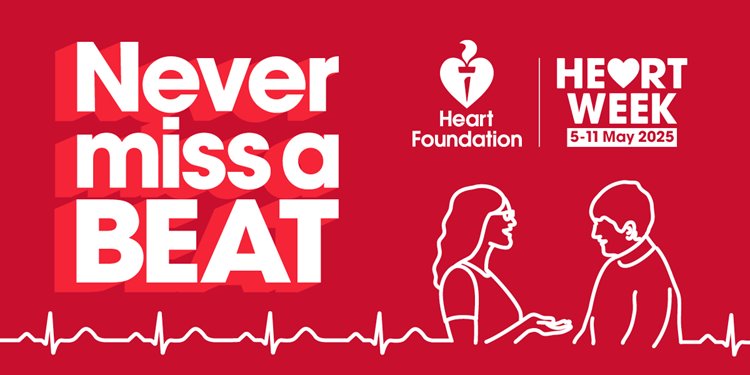
This Heart Week (5–11 May), start a conversation with your patients about heart health and the positive steps they can take to reduce their heart disease risk.
Every four minutes, one Australian has a heart attack or stroke. Never miss a BEAT. Use the AusCVD Risk calculator during your next Heart Health Check.
Since its launch in July 2023, the AusCVD Risk calculator has been used over 1 million times, providing an accurate and comprehensive mechanism for cardiovascular risk assessment in primary care.
You can further support the delivery of Heart Health Checks and engage your patients about their heart health by:
- Downloading your free Heart Week resource pack
- This resource pack contains a variety of resources and promotional tools to assist you in engaging your patients about their heart health.
- Setting up a heart health display at your workplace
- Enter the creative display competition to win one of three $500 vouchers!
- Registering for the Heart Foundation’s latest clinical webinar on 8 May
Learn more about how to get involved here.
Webinar: Let’s talk about sex: Understanding biological differences in CVD risk
Presented by the Heart Foundation Thursday 8 May (7.00pm to 8.30 pm AEST)

Join this expert panel featuring international experts Professor Hester Den Ruijter and Professor Christian Delles, alongside Australian specialists, as they explore the critical, yet often-overlooked impact of biological sex on cardiovascular disease risk.
Exploring Quality Improvement Webinar
Presented by WA Primary Health Alliance 7 May 2025 (6.30pm to 7pm AWST)

Join us for this webinar to discover how the Quality Improvement (QI) team at WA Primary Health Alliance (WAPHA) can help you meet your Measuring Outcomes (MO) CPD requirements while driving meaningful improvements in patient care.
Key webinar takeaways:
- Understand how structured QI leads to better patient care and CPD recognition.
- Learn how WAPHA’s QI Coaches provide hands-on support.
- Discover how Primary Sense can help identify care gaps and track improvements.
- See real-world examples of clinical and practice workflow improvements.
- Get started with WAPHA’s RACGP CPD-accredited QI activities tailored to your practice.
To find out more, view the flyer and register today.
Paediatric Weight Management Event
Presented by Perth Children’s Hospital and WA Primary Health Alliance 3 May 2025 (9am to 4.15pm AWST) In Person

The Perth Children’s Hospital Healthy Weight Service and WA Primary Health Alliance invite individuals working in the healthcare sector to a face-to-face event focused on effective weight management strategies.
This RACGP-accredited event will combine interactive learning with case study workshops, providing a well-rounded educational experience.
The following topics will be covered during the event:
- Raising the issue when weight is not the primary concern
- The language of weight management
- Goal setting with patients
- Local opportunities, where to go for information and resources, and referring on
- How to improve dietary intake
- How to improve physical activity
- Pharmacotherapy
There are 50 places available at this event, which is accredited for 7 RACGP EA CPD hours.
Register here today.
Gambling and Its Links to Mental Health and Other Addictions
Presented by ACRRM & Self Help Addiction Resource Centre)
7 May 2025 (5.00pm to 6.30pm AWST)
Join ACRRM for a powerful webinar exploring gambling harm and its intersection with trauma, mental health, alcohol and drug use, and family violence. This session features lived experience stories from the Three Sides of the Coin project, aiming to build empathy, reduce stigma, and promote practical screening and referral approaches in rural healthcare.
Includes video screenings and live Q&A with storytellers.
Gain tools to confidently address gambling-related harm with patients.
For more information and registration here.
GP Telehealth Networking Event
Presented by WA Primary Health Alliance
8 May 2025 (6.30pm to 8.30pm AWST)

Join us for a relaxed panel discussion and networking event focused on the use of telehealth in primary care from different perspectives.
Using telehealth can significantly improve GP workload by streamlining workflows, improving efficiency and providing faster, more convenient patient care.
Offering telehealth services at your practice, in conjunction with standard face-to-face consults, expands primary care opportunities for you and your patients.
WA Primary Health Alliance is currently providing support to GPs who are interested in using telehealth within their practice or within a residential aged care home.
To find out more, view the flyer and register today.
Expressions of Interest Shared Care Model: Healthy Weight Webinar
Presented by WA Primary Health Alliance and WA Country Health Service
20 May 2025 (6pm to 7.30pm AWST) MS Teams (online)
Currently, almost 1 in 4 children are overweight or obese and those with complex medical comorbidities are often referred to the Perth Children’s Hospital – Healthy Weight Service (PCH-HWS).
Regional referrals to the PCH-HWS represent 25% of all referrals and waitlists for this service are long and increasing.
To better address childhood obesity in regional areas, a shared model of care for managing children living in regional WA with high Body Mass Index (BMI) has been developed.
The key principles of the service delivery model include:
- Improving the equity of service provision for children across regional WA.
- Enhanced triage for appropriate support for obesity-related medical conditions.
- Providing obesity management support closer to home wherever possible.
The model will be rolled out in WA Country Health Service (WACHS) regions, using a phased approach throughout 2025.
WA Primary Health Alliance (WAPHA) and WA Country Health Service (WACHS) are hosting an information session for General Practitioners (GPs) to learn about the important role they can play in supporting children within the shared care model and hear from clinical and public health experts in the field, including Perth Children’s Hospital – Healthy Weight Service.
If you are a GP interested in the shared care model for managing children with overweight or obesity in regional WA, please register your interest. Registration is capped by region for equitable access and places are allocated on a first-come, first-served basis
Complete an Expression of Interest here in attending this event. Successful applicants will be notified and provided with link to event. Remuneration provided in accordance with WAPHA’s Paid Participation Policy.
Aboriginal cultural diversity training – free online training for all practice staff
Presented by WA Primary Health Alliance
Available until June 2025

To help improve health outcomes for Aboriginal people, WA Primary Health Alliance (WAPHA) is offering free online Aboriginal cultural diversity training for all general practice staff.
The free online training is the SBS Inclusion Program (First Nations) that includes short learning modules, which take approximately an hour to complete in total, with the following learning outcomes:
- Improving knowledge about the history of Aboriginal culture and experiences.
- Understanding how to identify myths versus facts. Comprehending some of the stereotypes and assumptions sometimes made about Aboriginal people.
- Recognising the importance of spirituality in Aboriginal culture.
- Recognising the importance of family and kinship in Aboriginal culture.
- Grasping the impact of colonisation on Aboriginal people.
- Comprehending the trauma felt by the Stolen Generations and the intergenerational trauma still being felt today.
- Implementing tools to actively participate in the reconciliation process as both an individual and a business.
- Explaining what the Uluru Statement from the Heart is and how it came about.
- Describing the events that led to the referendum in 2023, which proposed Aboriginal people be recognised in an enshrined Voice to Parliament.
To find out more view the flyer here and register today!
Register now for a Clinician Assist WA live demonstration
Presented by Clinician Assist WA
Multiple Times & Dates Online

Clinician Assist WA is a secure website providing GPs and other health professionals with guidance for assessing, managing and referring patients across Western Australia. It has replaced HealthPathways WA, offering the same trusted local guidance, features and functionality and remains available at no cost.
The Clinician Assist WA team will run online demonstrations facilitated by a GP Clinical Editor throughout 2025 to support users. These sessions will demonstrate how to maximise integration of Clinician Assist WA into your clinical practice. Learn key functionalities of the website and how to access condition specific tools and resources, Referral Access Criteria (RAC) (where available), GPbook Specialist Directory and visiting specialist rosters.
Sessions have been approved for 1 CPD Educational Hour with RACGP and will be held online on the following dates:
- Thursday 12 June 2025 – 12:30pm to 1:15pm
- Wednesday 17 September 2025 – 12:30pm to 1:15pm
- Tuesday 18 November 2025 – 12:30pm to 1:15pm
Demonstrations are open to general practitioners, general practice staff and other health professionals registered to practice in WA.
Other Webinars, Events & Workshops
Acknowledgement
WA Primary Health Alliance acknowledges and pays respect to the Traditional Owners and Elders of this country and recognises the significant importance of their cultural heritage, values and beliefs and how these contribute to the positive health and wellbeing of the whole community.



